Photos: Suicide among war contractors
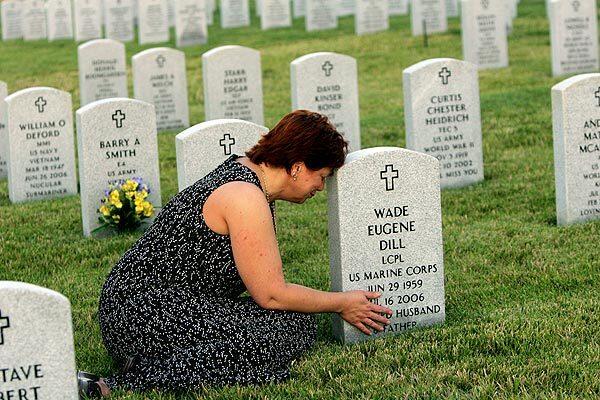
Barb Dill visits her husband’s grave in Shasta County on the one-year anniversary of his suicide. Wade Dill, a Marine Corps veteran, worked as a civilian contractor in Iraq, and three weeks after he returned home for good, he shot himself in the head. “There are many people falling through the cracks,” says Paul Brand, the CEO of Mission Critical Psychological Services. “Can the government really send people to a war zone and neglect their responsibility to attend to their emotional needs after the fact?” (Francine Orr / Los Angeles Times)
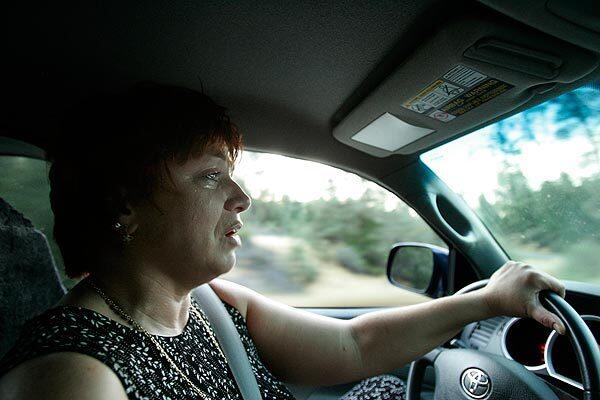
Barb Dill of Redding cries on the way home from the Northern California Veterans Cemetery where her husband is buried. “Iraq killed my husband. Iraq killed my husband. I do not know what happened or what he saw,” she said. (Francine Orr / Los Angeles Times)

Barb Dill cooks as her daughter, Sara, 17, peers into the refrigerator in their Redding home. Barb’s husband, Wade Dill, an exterminator, took a job in Iraq for a company contracted to do pest control on military bases. She noticed a change in Wade when he returned for a visit in December 2005. He seemed moody and often angry, lashing out at her and Sara. “He would say hateful things to me and our daughter. Things he had never said before,” Barb Dill said. “This was a man that loved his little girl and his wife. He always called us ‘his girls.’ ” (Francine Orr / Los Angeles Times)

Sara Dill, 17, lies in bed in the middle of the day at her Redding home. She was 16 when her father killed himself after working as a contractor in Iraq. Wade Dill at first saw the high-paying pest-control job as an opportunity, his wife, Barb, said. “He could start a college fund for our daughter, pay off the mortgage and have a nice retirement.” Instead, she ended up deep in debt after his death. (Francine Orr / Los Angeles Times)
Advertisement
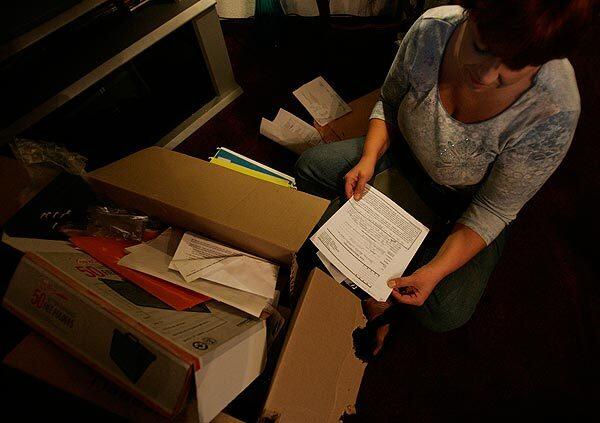
Barb Dill looks through paperwork related to her husband. Dill says she felt abandoned by everyone after his suicide: her husband’s employer, the insurance company and especially the federal government. “Shouldn’t our government take care of its own people, who are doing jobs our government, ultimately, wanted them to do?” (Francine Orr / Los Angeles Times)
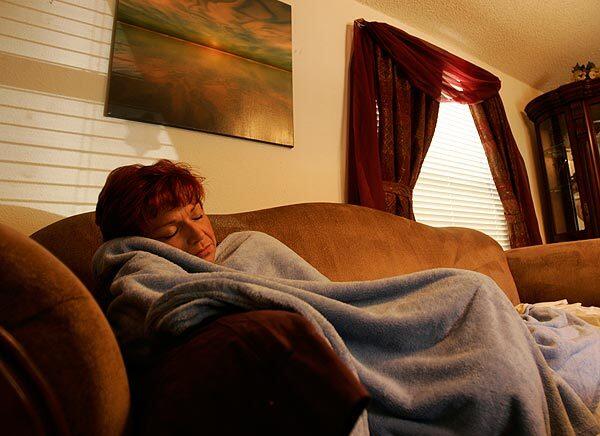
Barb Dill dozes off. After her husband’s death, she plunged into depression, struggling to cope with her daughter’s grief and the sense that she had failed her husband in his time of need. She has suffered mostly alone. Her husband’s former employer, defense contractor KBR, did not return phone calls. Except for a handful of websites, no support groups exist for widows of civilian contractors. The federal government offers no counseling for civilians returning from work in war zones. (Francine Orr / Los Angeles Times)
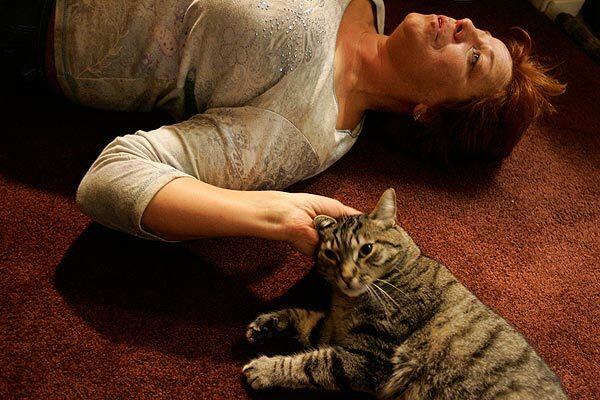
Barb Dill rests on her living room floor as she speaks about her husband’s suicide. “It leaves you with the most empty feeling. And there’s no Band-Aid, there’s no drugs, there’s no operation, there’s nothing to make it better. They say time, but I’m waiting. And some days it [has been] really rough.” (Francine Orr / Los Angeles Times)
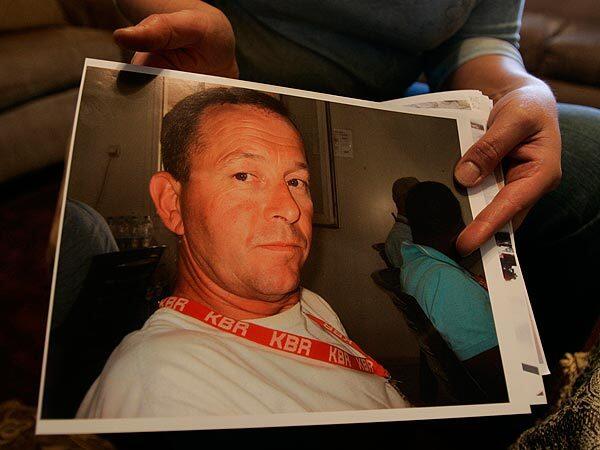
Barb Dill holds a photo of her late husband. A psychiatrist hired by her attorney found that job stress in Iraq was one of the factors that drove Wade Dill to suicide. But a psychiatrist hired by AIG, the insurance giant that dominates the market for the specialized workers compensation policies issued in Iraq and Afghanistan, testified that Dill suffered from depression and that his suicide was unrelated to the violence he witnessed in Iraq. (Francine Orr / Los Angeles Times)
Advertisement
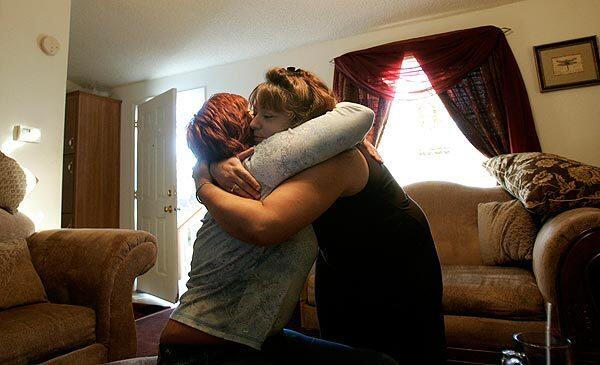
Barb Dill, left, gets a hug from friend Dawn Dishong. Dill says she is trying to hold her life together while awaiting a final decision in the court case over compensation after her husband’s suicide. “We’re just slowly sinking,” she said. “It’s hard to be strong.” (Francine Orr / Los Angeles Times)







